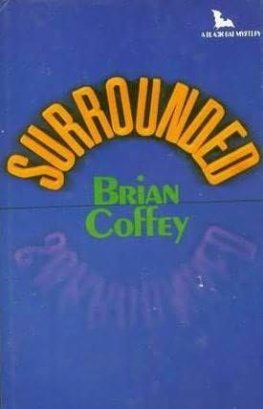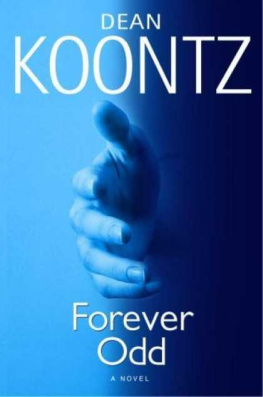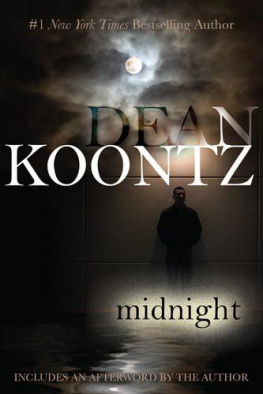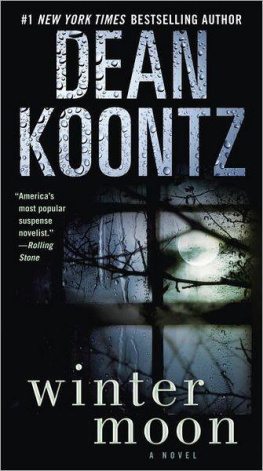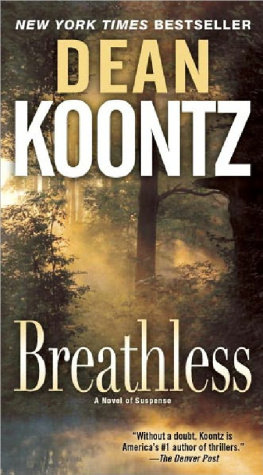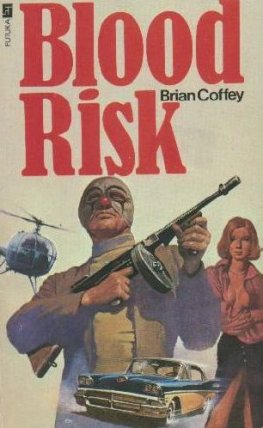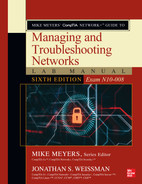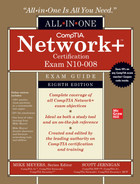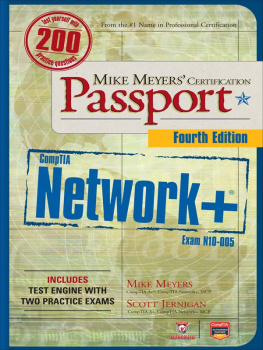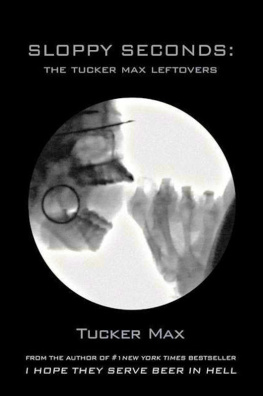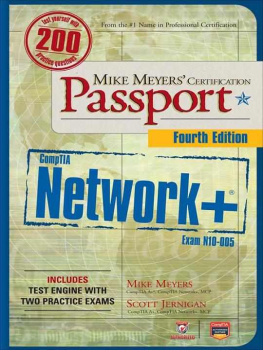Dean Koontz
Surrounded
(Mike Tucker 2)
The slim, tousle-haired man entered the lobby of the Americana Hotel, leaving the cacophony of the Seventh Avenue traffic behind him. Well dressed and quietly handsome, obviously sure of himself and in control of his world, he had a trace of aristocracy in his fine-boned face. And a vague but unmistakable touch of fear lay in his dark eyes.
It was one thing for the son of a respectable family to carve out a successful career as a criminal entrepreneur, but quite another for him to come to accept this unconventional way of life on a visceral level. He knew he was a good thief, a master planner, but he always expected to get caught. He was not yet working on the new job, was not currently engaged in anything illegal, but already he was wary and on edge.
Pushing through a mob of conventioneers and their wives, he crossed to the seedily elegant marble staircase that led down to the hotel restaurants. At the bottom of the steps he glanced at the ranks of public telephones but decided against using any of them. He passed the entrance to the Columbian Coffee Shop, turned the corner, and walked the length of the long corridor to the second set of telephones at the back of the hotel. These were used far less than those phones positioned more conveniently at the base of the main staircase. Here he was alone. The dead-end hall was quiet, an unexpected pocket of serenity in the center of the city.
Here he would not be overheard. And privacy was essential, more for his own peace of mind than for any real danger that the pending conversation would reveal his criminality.
He deposited a dime and dialed the operator. She waited through eighteen rings before she deigned to answer, and then she placed his call to Harrisburg, Pennsylvania, as if she were doing him a favor instead of performing a service.
"Felton's Bookshop," the Harrisburg connection said. It was an old man's voice: cracked, dry, weary.
"Clitus?"
"Yes?"
"This is Mike Tucker," the dark-eyed man said. He leaned in toward the phone, sheltered between the Plexiglas soundproofing wings on both sides.
Felton hesitated. When he did speak, he unconsciously lowered his voice. "Look, I'm busy right now, Mike. The place is full of customers. Maybe Can I call you back in five minutes?"
"Of course," Tucker said. The call back was part of the routine they went through every time it was necessary for them to communicate. "I'll give you the number I'm calling from. You have something to write with?"
"Wait Yeah, here's a pencil. Go ahead, Mike."
After Tucker gave him the number, the old man read it back. Neither of them had mentioned the area code, an omission that would have made the number meaningless to anyone who might be listening in on the line.
"I don't want to wait here too long," Tucker said.
"I'll get back to you in five minutes. Promise."
The dark-eyed man hung up.
All the papers that he carried-driver's license, credit cards, museum membership-identified him as Michael Tucker, although Tucker was not his real last name. His legal surname was well known to readers of the Times society and financial pages because his father's wealth commanded both respect and envy. However, he felt more comfortable with his alias because the Tucker identity had not been contaminated by his father. He did not merely hate the old man, he loathed him. When he was masquerading as Michael Tucker, he felt fresh and clean; and he could almost convince himself that there was no blood tie between him and his father. The Tucker identity was a release from unpleasant associations and certain burdensome responsibilities. Besides, when you broke the law to earn your living, you were wise to use a name that could not be traced back to you.
The hotel corridor remained quiet. Far down at the other end, past the public restrooms and the entrance to the bar that would open later in the day, dishes rattled in the coffee shop. Someone laughed, voices rose in good humor, but no one turned the corner and came Tucker's way.
Finally the telephone rang.
"Clitus?"
"Hello, Mike. How are things with you?" He had left the bookshop for a public phone. Traffic noises filled the air behind him.
"Not bad," Tucker said. "How's Dotty?"
"Couldn't be better," Felton said. "She's taking belly-dancing lessons."
Tucker laughed. "What is she-sixty-four?"
"Sixty-three," Felton said. "I told her she'd be making a fool of herself. But you know something? When she comes home from the lessons and shows me what she's learned, she gets me so excited I'm like a honeymooning bridegroom again." His own chuckle complemented Tucker's laugh. "But this isn't what you called about. You got my letter?"
"An hour ago," Tucker said.
The letter had been in the morning's mail at Tucker's midtown Manhattan post-office box: a white envelope with no return address. He knew it was from Clitus before he opened it because he received letters exactly like it once every month or so. Half that often, it was something worth following up. Clitus Felton earned his way as liaison between criminal free-lancers on the East Coast. Once he had been in the business himself, pulling off two or three big robberies a year. But he was old now, sixty-eight, nearly forty years older than Tucker. And he had retired because Dotty was afraid that his luck was running out. However, after six months in the bookstore, he had known he would be unhappy as long as he was permanently estranged from the old life, the old excitement. Therefore, he had contacted friends and offered his middle-man services. He kept names, aliases, and addresses all in his head, and when someone contacted him to find the right partners for a job, Felton considered the possibilities and wrote a few letters and tried to help. In return, he got five per cent of the take if the job went as planned. It was second-hand excitement, but it kept him going.
"Your letter mentioned bank work," Tucker said. "You know I don't like bank work."
"The letter also mentioned that it was different from your usual bank work," Felton said. "It's very different. Safer, surer, with a bigger-than-average reward."
"Where?"
"California."
"That's a long way from home," Tucker said.
"It's always best to work that way," the old man said. "Don't you agree?"
"I guess I do."
At the far end of the corridor a young couple turned the corner and started down the long hall toward Tucker. The girl was searching the bottom of her purse and passing change over to the young man with her. Clearly they were going to use one of the pay phones.
"I can't talk much longer," Tucker said. "Can we get down to basic facts?"
"You should get in touch with Frank Meyers," Felton said. "You know him? Ever worked with him before?"
"No."
"He's right there in your city."
"Is this his job?"
"Yeah. He lived in California for a while-that's where he got the idea," Felton said. "He's a good man."
"We'll see," Tucker said, watching the young couple as they drew nearer. The boy had hair to his shoulders and looked out of place in a well-cut business suit. The girl was dark and pretty. "When can you set up a meeting?"
"I'll give you his home address," Felton said.
Tucker frowned. "He doesn't mind my knowing it? He's that careless?"
"He isn't careless," Felton said. "He-"
"I don't like working with a man who can't separate his professional and private lives."
"Not everyone's as fanatical about that as you are," the old man said. "Lots of guys have been in the business for years and years, not separating anything, and they haven't taken any falls. I can name dozens."
"Sooner or later they'll get bitten," Tucker said.
"Then you aren't interested in this?" Felton asked.

